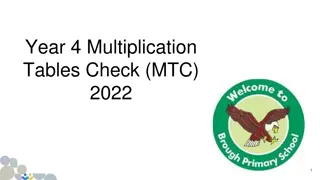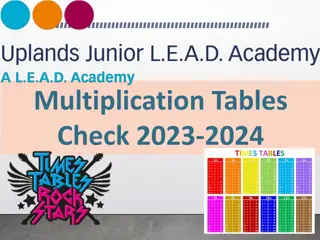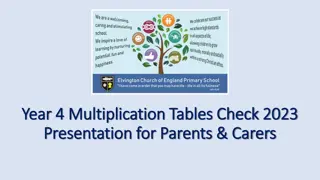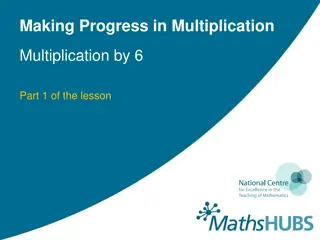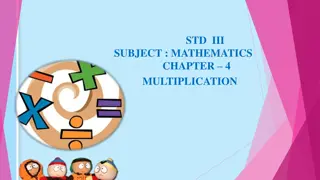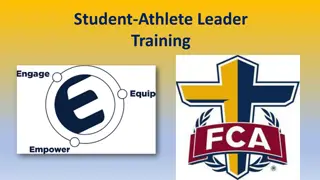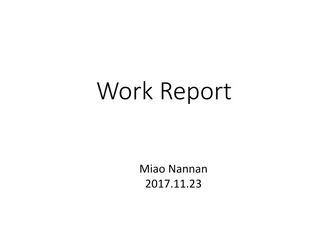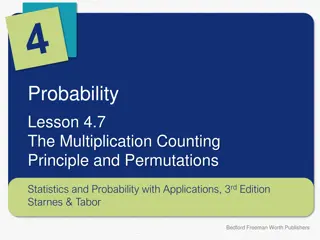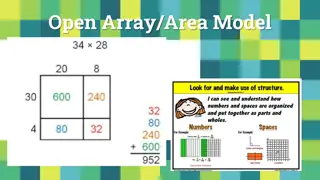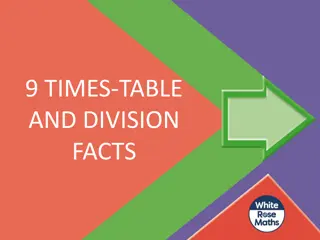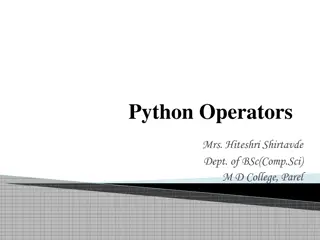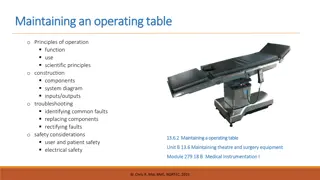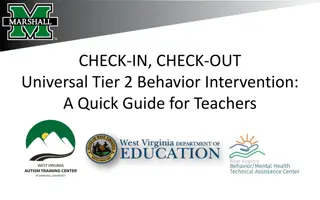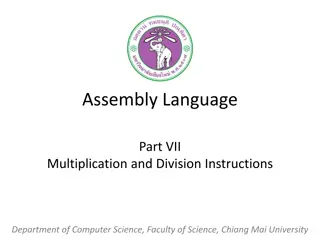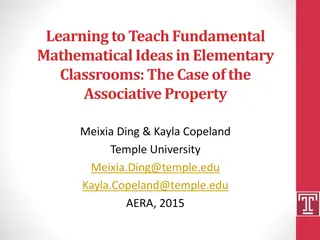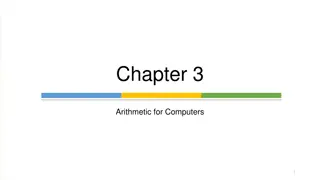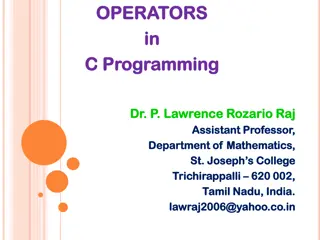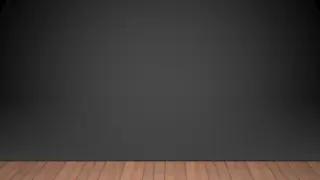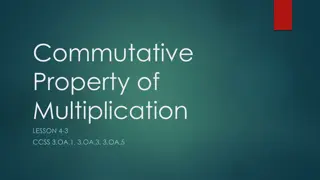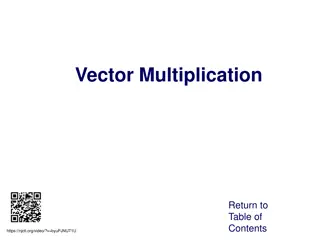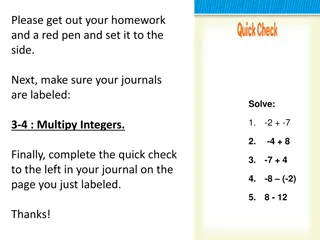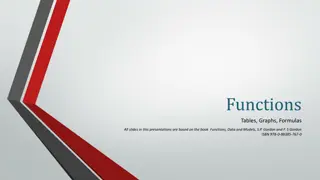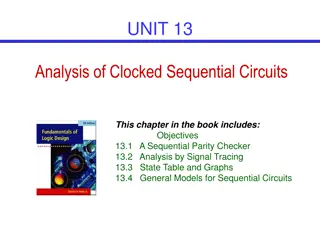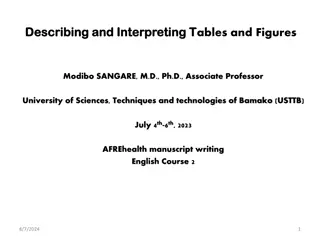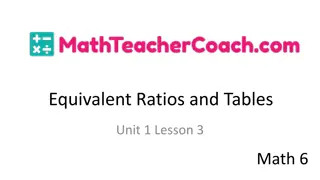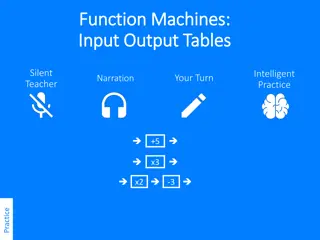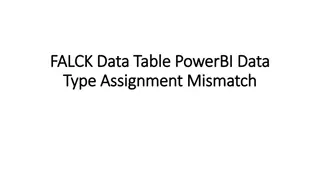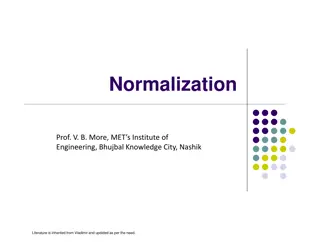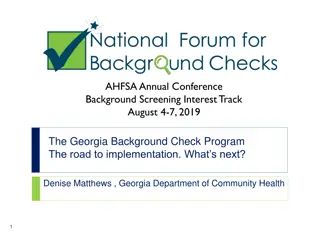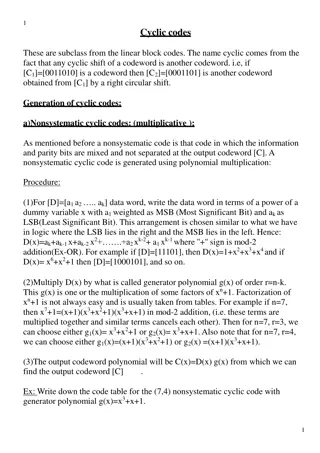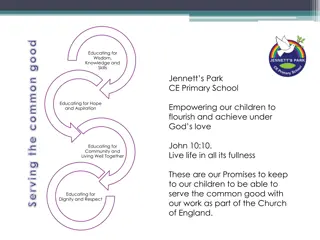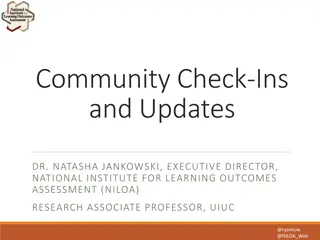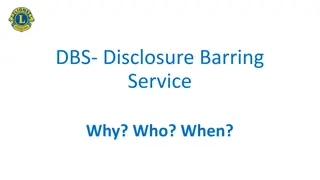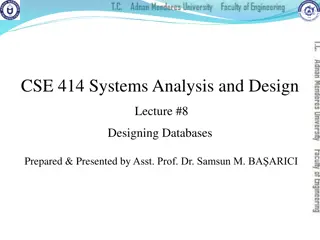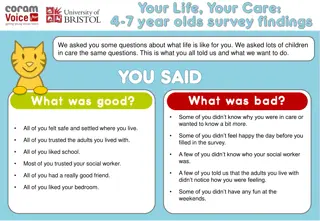Importance of Times Tables and the Multiplication Tables Check for Children
Times tables play a crucial role in supporting children's mathematical foundation, essential for their future academic success. Understanding the significance of multiplication facts up to 12x12 is emphasized, aiding proficiency in later years. The Multiplication Tables Check, conducted digitally, ensures children are equipped with necessary mathematical skills for higher education levels. The check format, administration window in June, question types, and time frame per pupil are detailed to provide a comprehensive overview.
Download Presentation

Please find below an Image/Link to download the presentation.
The content on the website is provided AS IS for your information and personal use only. It may not be sold, licensed, or shared on other websites without obtaining consent from the author. Download presentation by click this link. If you encounter any issues during the download, it is possible that the publisher has removed the file from their server.
E N D
Presentation Transcript
Ashton West End Multiplication Table check meeting 2023
Why are times tables important? Times tables are fundamental to support children and under pin everything within Maths. It is vital that all children know their multiplication facts up to 12 x 12. Knowing the multiplication facts up to 12x 12, will give them the essential knowledge needed to be proficient with Years 5 and 6 Curriculum and help in their mathematic future in High school.
When the multiplication tables check will be carried out There will be 3-week window in June for the check to be completed. Monday 5th June Friday 23rd June. There is no set day to administer the check. Children are not expected to take the check at the same time.
How the multiplication tables check is carried out The check will be fully digital and take place on screen. Children will be able to use school s desktop computers to complete the check. Answers will be entered by pressing the numbers on the computer keyboard
How the multiplication tables check is carried out The multiplication check will take less than 5 minutes per pupil. Children will get 6 seconds from the time the question appears to input their answer. There will be 3 practice questions followed by 25 questions with a 3 second pause in-between questions.
The questions Each pupil will be randomly assigned a set of questions. The 25 questions one child will receive will not be repeated to another child. Children will only have multiplication problems in their check (no division). Pupils will not see their individual results when they complete the check.
During the check There will always be questions from the 2, 3, 4, 5, 6, 7, 8, 9, 10, 11 and 12 multiplication tables in each check. There will be no questions from the 1 times table (i.e 1 x 8 or 8 x 1). The 6, 7, 8, 9 and 12 times tables are more likely to be asked. The reversal of questions will not feature in the same check. E.g ( 3 x 10 and 10 x 3)
Multiplication is commutative 3 x 2 is the same as 2 x 3. Children need to understand that multiplication can be completed in any order to produce the same answer. Sometimes this link needs to be made explicit. Product x product = factor
For practice You can use this free multiplication table check which will give you an idea of the speed at which children will be asked questions: https://mathsframe.co.uk/en/resources/r esource/477/Multiplication-Tables-Check
How can you help at home? We practise our timetables daily at school; we would love for your children to practise with you at home so that they feel confident when completing the test. The easiest way is to quiz your child For example 8x6 is?
Encourage children to play Times table Rockstars as often as possible. Small 5 minute daily sessions will help children to learn times tables more than one long session a week. The soundcheck is very similar to the multiplication check. Quiz your child at home regularly. This could be when making dinner or on the journey to school.
Display a poster with all of the times tables facts on at home. We teach lots of tricks to help the children remember the times tables. You could learn a trick together. - Create flash cards with your children and let them play with friends, siblings, grandparents. They could write the answer on the back and test themselves.
We use lots of songs to teach our times tables in school. Children can recognise these from YouTube by typing in for example, the 4 times table song. Let them sing along with those at home. Children could also make their own times tables. Chanting their times table is an excellent way to learn them. They could do this each time they walk up the stairs
Thank you for attending, we hope you have found it useful!
Extra Pupils not taking the check If the headteacher decides a pupil should not take the check, they should record this on the MTC service. The headteacher s decision regarding participation is final. Pupils should not take the check if they are absent during the entire 3-week check window they are unable to participate, even when using suitable access arrangements they are considered unable to answer the easiest questions or are working below the national curriculum expectation for year 2 in multiplication tables12 they have just arrived in school during the check period and there is not enough time to establish the pupil s abilities for example, pupils with English as an additional language (EAL) they are working remotely due to disruption caused by coronavirus Schools can also record a pupil as not taking the check if: they have left the school they appear on the register in error
Extra Access arrangements may be appropriate for pupils: with an education, health and care (EHC) plan for whom provision is being made in school using the Special Educational Needs and Disability (SEND) support system, or whose learning difficulty or disability significantly affects their ability to access the check who have behavioural, emotional or social difficulties with EAL and who have limited fluency in English
If a pupil was interrupted during the check, you can allow them to restart it. The pupil will see a different set of questions from their previous attempt. Only the outcome of their final completed attempt will be reported, regardless of which score was higher. Schools must not allow a pupil to restart the check simply to have another go , unless they suffered a significant disruption described below. Pupils can only restart the check twice (allowing them a maximum of 3 attempts.) Restarts are allowed for the following reasons: classroom disruption the pupil was significantly distracted (for example, a fire alarm or building evacuation, illness during the check, or behavioural disruption in the check room) did not complete the pupil did not complete the check (for example, they accidentally closed the check window) IT issues there was a problem with the digital device the pupil was using (for example, device hard drive failure or power loss) prolonged loss of internet connection during the check and the data could not be recovered at the end


